When setting up your own home movie theater system, there are a lot of different devices and equipment you should seriously consider getting.
A lot of first time theater system owners know how to cover the basics like screens and sound systems, but many often forget about some of the most important devices that can seriously have a huge impact on how efficient your theater system is.
One such piece of equipment is the power manager – but so many people don’t even know what this device is.
If you are thinking of setting up your own home theater or want to try and make the one you already have more efficient and better, then a power manager could be the key.
Here, we have pulled together an in depth ultimate guide to power managers for home theaters so you can understand them fully no matter what level of knowledge you are at now.
Whether you are a beginner or an expert, check out this guide to home theater power managers so make sure you have everything covered.
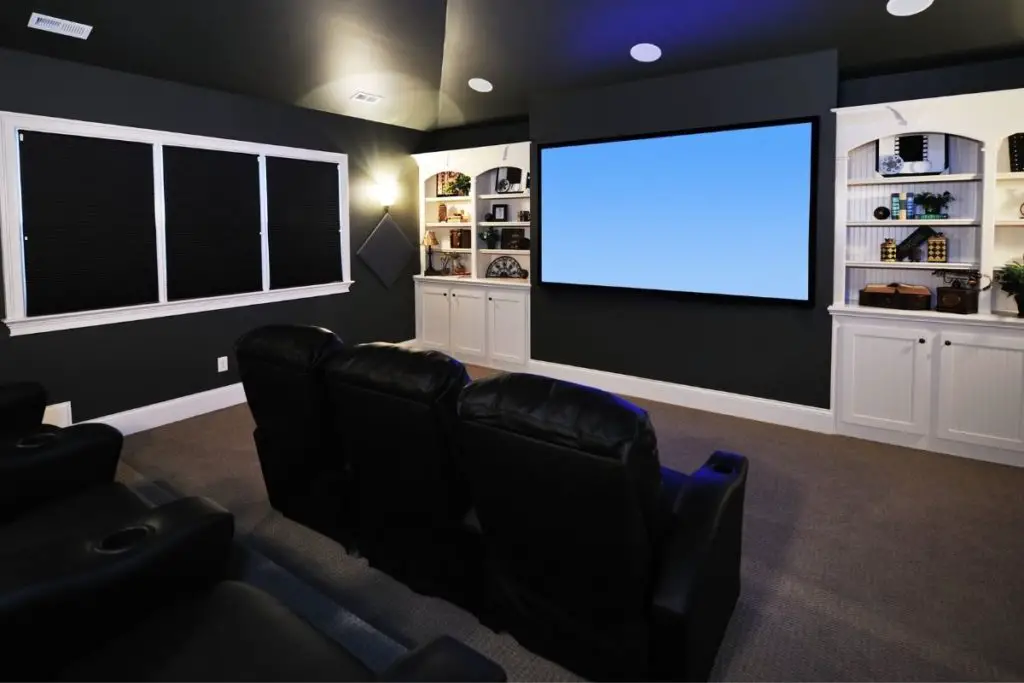
What Are Power Managers?
Let’s start with the basics – what actually are power managers?
Well, power managers are not very common in the average household which is why so many people often go their whole lives without learning about this useful piece of equipment.
Power managers are also known by a few other names including ‘power conditioners’ which can cause some confusion, so it’s important to remember that power managers and power conditioners are actually the same thing – but what do they do?
Power managers are designed to regulate the distribution of alternative current (AC) power through the devices it is connected to. Not only that, but power managers are also great for protecting your devices from power surges and cleaning out ‘dirty’ power flow from your devices.
A few more high-end models may also offer a range of other features including sequential system power on/off (which means turning off certain devices when the voltage is low) and even protecting your devices from undervoltage damage.
This means that power managers offer a lot of important benefits that can protect all kinds of devices, prevent damage and keep your electrical systems running smoothly.
Power Managers And Home Theater Systems
So, power managers have a lot of features and benefits to offer, so what about their role when used in a home heater system?
Well, experts will say that power managers actually have two different roles when used in home theater systems but both roles are very important to ensuring that your home theater system is a success.
The first role is dedicated to improving your home theater system’s performance. Everyone wants the best performance possible out of every aspect of their home theater systems.
This is because when one part of your system falls behind or isn’t up to scratch, it can ruin the whole viewing experience when you want to fire up the system and enjoy some of your favorite movies or shows.
Power managers can help tackle this issue by improving the noise filtration in the flow of electricity through your home theater system.
By ensuring proper power distribution, your power manager can help filter out any noise that disrupts the performance of your other devices and equipment.
The second role of a power manager in a home theater system is to offer protection from things like power surges or under voltage which can both damage your electronics.
This kind of damage can have a serious impact on the lifespan of your devices, meaning that you have to spend more and more funds keeping your home theater system up and running.
By including a power manager, you can extend your devices and equipment’s lifespans so you can save yourself a lot of money in the long run.
So, a single power manager can be pretty versatile when it comes to how it works in a home theater system – but is it necessary that you get one?
Do You Need A Power Manager For Your Home Theater System?
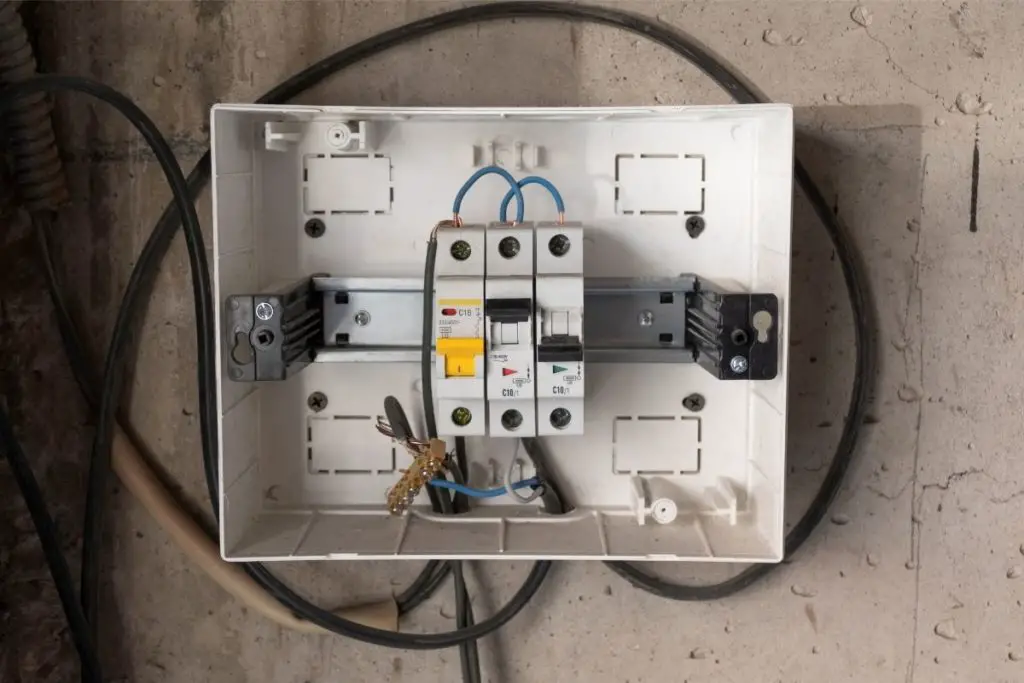
It’s not an absolute necessity to have a power manager connected to your home theater system; basically, the whole system will still work fine with or without one but because of all the multiple benefits that power managers offer, a lot of experts and home theater owners would definitely recommend that you get one.
This is because if you want to protect your home theater system and ensure that you get the possible performance out of every piece of equipment, then a power manager is a must-have.
This is especially true if you live somewhere where power surges from stormy weather is common during certain times of the year.
Instead of having to restrict yourself when you want to use your home theater, using a power manager means that you can enjoy using your home theater without worrying about power surges severely damaging your devices.
Also, because power managers are great at filtering out ‘dirty’ power and decreasing noise, this means that your home theater system will become way more efficient and perform to the best of its ability.
This will result in better viewing experiences that are super high quality and enjoyable – which is the whole point of a home theater!
Not only that but power managers are also a great way to help keep your home theater looking clean and clutter-free.
Although this is not the main reason why a lot of home theater owners choose to include a power manager in their home theater system, they are still great for keeping the environment of your home theater tidy by managing your power cables.
Because power managers keep their connection ports to the back of their body, this means you can flawlessly attach all of your wires and cables without making a mess.
So, if loose wires and cables are ruining the whole vibe of your home theater, a power manager can literally help ‘manage’ your mess just like how it manages the flow of power to your devices.
This may be a minor advantage but it’s an advantage nonetheless.
Understanding Dirty Power
One of the biggest confusions when it comes to talking about power managers and surges is the term ‘dirty’ power. If you are just starting out with your first home theater system, then this term could be completely new to you. So, let’s go over dirty power and how it could affect your home theater system.
Dirty power is the term given to power that is affected by a range of different problems that can all lower its quality. These ‘abnormalities’ include things like frequency variants, surges, low power, voltage variants and more.
Because there can be such a wide range of different issues and sources that affect our power, the term ‘dirty’ power is just used as an umbrella term for poor quality power no matter the cause.
This low quality of power can result in a poor performance from your devices and electronics – including the ones used in your home theater system!
Dirty power is one of the many causes of power issues which can be disruptive to those who just want to enjoy their home theaters.
Not only is it super inconvenient when your devices are affected by dirty power, but it can also be seriously damaging – it is possible for dirty power to cause malfunctions that can damage your electronics beyond repair.
This means that you end up having to replace costly equipment that could have been saved by including a power manager in your home theater system.
For example, take speakers or amplifiers.
One of the best things about having your own home theater is that you can completely immerse yourself in your entertainment with large images and surround sound. Most home theater owners love to blast out a lot of sound which means that a lot of home theater systems feature lots of speakers, amplifiers and receivers.
However, all of these different components added to a single system can result in dirty power. This is because AC power has to split up and this results in low power reaching your electronics.
With speakers in particular, this dirty power is especially noticeable because you can literally hear popping and humming noises leaking in through your speakers, affecting the quality of the audio of your home theater.
This noise can be super distracting – but a power manager helps filter that out so your system sounds cleaner and your sound systems can give out a much better performance.
The result? You get to enjoy your entertainment in the way you paid for it.
Are There Any Downsides To Power Managers?
We’ve talked a lot about the benefits of power managers but unfortunately, nothing is perfect and there are some people out there who would rather not use power managers in their home theater systems – but why?
Well, one argument is that power managers can sometimes do their job too well when it comes to noise filtration.
Sometimes, they are responsible for removing effects like bass and treble which can cause sounds and audio to sound a lot duller when played through a system that features a power manager.
Another argument revolves around an ongoing debate about just how much of a performance boost power managers are responsible for, however it is agreed within the community that they do provide a lot of protection for your electronics.
So, if you plan on playing a lot of music through your home theater system or you enjoy the seat-shaking vibrations heavy bass and treble can cause, using a power manager in your system may leave you a little disappointed.
Power Manager Alternatives
Two other devices you may be recommended to try out instead of a power manager in your home theater system are a surge protector and a power regenerator.
Power regenerators have a lot in common with power managers but they are generally considered to be far more capable and powerful at their job.
However, the main reason why a lot of home theater owners have a power manager instead of a power regenerator is cost.
Power regenerators cost a lot more to buy outright than a power manager does and depending on how often you intend to be using your home theater, it’s not always the best choice for all home theater owners.
Surge protectors, however, are definitely an alternative you can consider if losing bass and treble in your home theater’s audio system is definitely something you want to avoid.
Surge protectors are actually often confused with power managers because they have a similar purpose, although they do work a little differently from actual power managers.
This is because surge protectors are low voltage capacity devices that protect your electronics from damage caused by power surges – as its name suggests.
However, because most surge protectors have low voltage capacity, this means they cannot protect your electronics from high voltage power surges.
So, if a lightning strike caused a power surge in your home, your electronic devices are not protected because there is too much power in the one surge.
So, this means that power managers are still better at protecting your electronics in your home theater system because they are made to protect against both low and high voltage power surges.
This is because they are designed with a type of technology known as Extreme Voltage Shutdown (or EVS for short) where it instantly disconnects all of your connected devices and electronics to stop them from being damaged from any kind of power surge.
This means that many experts still consider power managers to be the better option between the two because power managers offer more protection.
So, overall, the closest alternatives to power managers still do not meet in a lot of areas. Surge protectors provide less protection, and power regenerators are way more expensive.
This makes power managers the perfect medium between the two. However, if you have the funds to purchase a power regenerator instead of a power manager, then it’s definitely worth looking into doing this because it’s generally agreed that power regenerators work better than power managers in all fields.
Where You Can Buy A Power Manager
If you are set on including a power manager in your home theater system, then the next step is to find out where you can purchase a great power manager.
There are many options out there but here are our recommendations when it comes to power managers. Check them out to see if any of them fit your needs!
Belkin 12 Outlet Power Protector
This power manager from Belkin is the first one on our list because it covers a lot of different bases when it comes to what you want in a power manager.
Not only is it durable and does a great job at protecting your devices from surges, it also has plenty of different outlets for you to use so you can neatly arrange all the wires of your many home theater devices. Although this does make it quite bulky, that is expected when it comes to power managers.
Plus, it’s available at a pretty fair price which makes it affordable and accessible to all.
There is another power manager from Belkin that is a little different because 8 of its 12 power outlets can actually rotate.
This makes it easier to plug your devices in and ensure their wires stay at a comfortable angle, reducing the chances of long-term damage due to wires being bent to stretched at awkward angles.
Although this does mean you will have to pay a bit more for this power manager, it could be a feature that makes a world of difference!
Panamax MR4300 Power Management
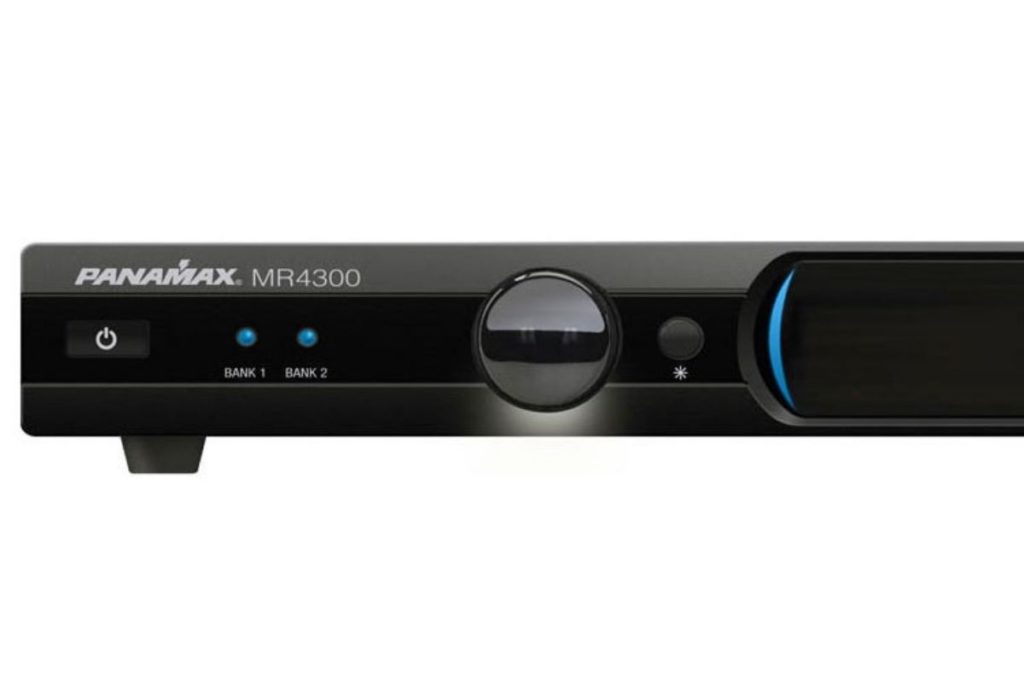
Panamax are known for making a range of different devices that all work great for home theater systems, and their power managers are no different.
This one is specifically designed for high quality protection and filtration, with media lights to help make display and managing your wires a lot easier.
There are only 9 outlets in total, all towards the back, but the overall design of this power manager is so sleek and smooth that it will blend in with other equipment including DVD players.
It does definitely cost more than some other power managers but Panamax have built this one specifically for home theater use so you know that you will do its job right!
This product is also available at Amazon.com.
Conclusion
When you come down to it, power managers are great products and if you’re willing to spend some money on them, they will certainly help improve your home theater experience.
This is because they offer so many important benefits including protecting your precious electronics from damage in power surges and cleans up any ‘dirty’ power that can reduce your electronics performance.
Without one, you could experience crackling or popping in your audio systems as well as other effects with your other devices.
Although there are alternatives like power regenerators that can do a better job, they are also way more expensive and thus, less accessible to a lot of people who want their own home theater.
While other devices like surge protectors can provide some form of protection for your devices, they are still less effective than power managers.
So, there are lots of benefits to including a power manager in your home theater system. Check out the above recommendations on where you can purchase one, and see for yourself how effective a power manager can be!
- How Do I Connect My Samsung Soundbar To Bluetooth? - February 5, 2024
- How To Connect Soundbar To TV With Optical Cable? - February 5, 2024
- How to Choose the Right Audio System for Your Home Theater Setup - April 25, 2023


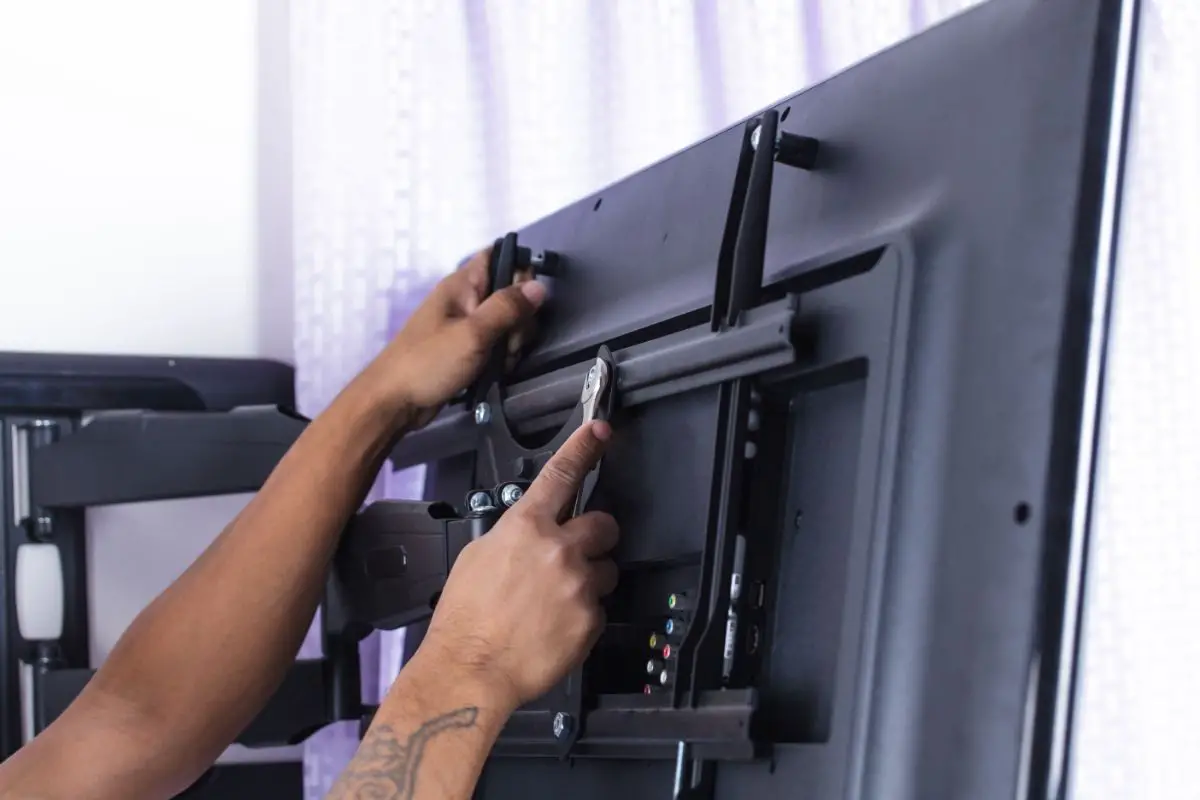
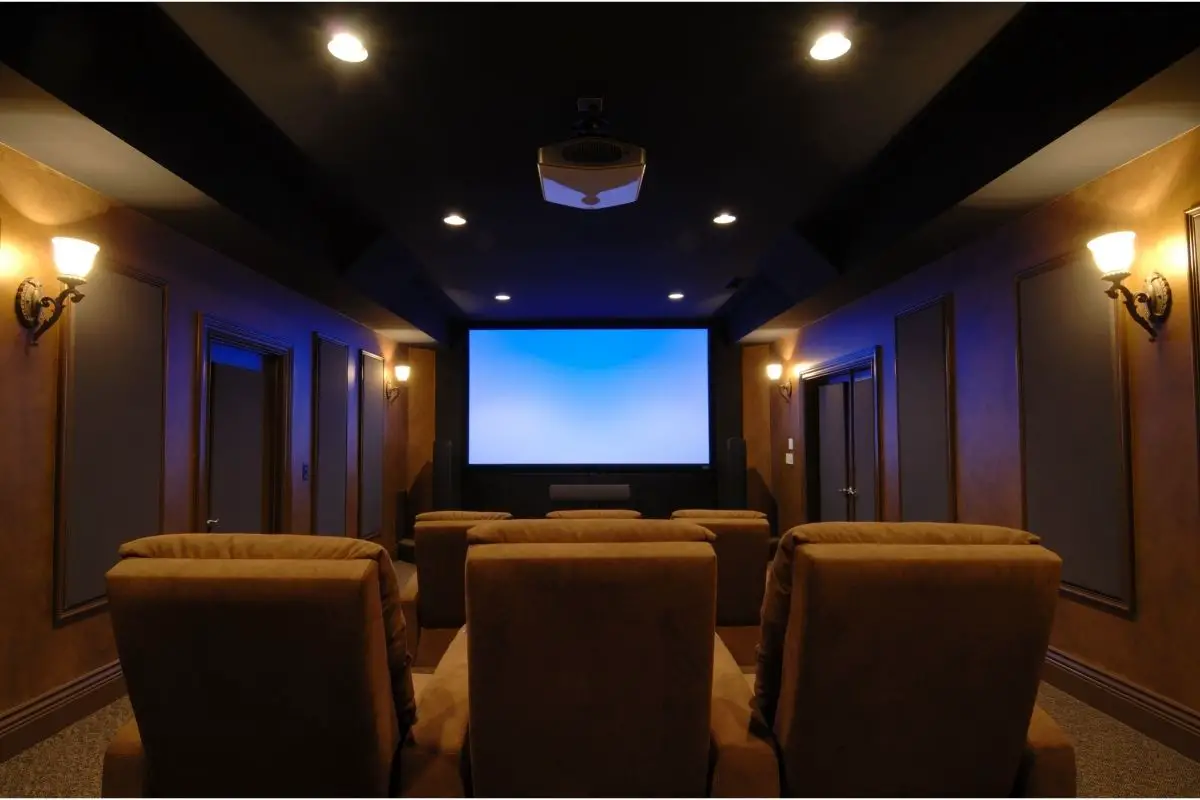
![Bose Soundbar Remote Not Working? [Quick Fix Guide] bose soundbar](https://www.cinemaequip.com/wp-content/uploads/2022/07/bose-soundbar-1-150x150.jpg)
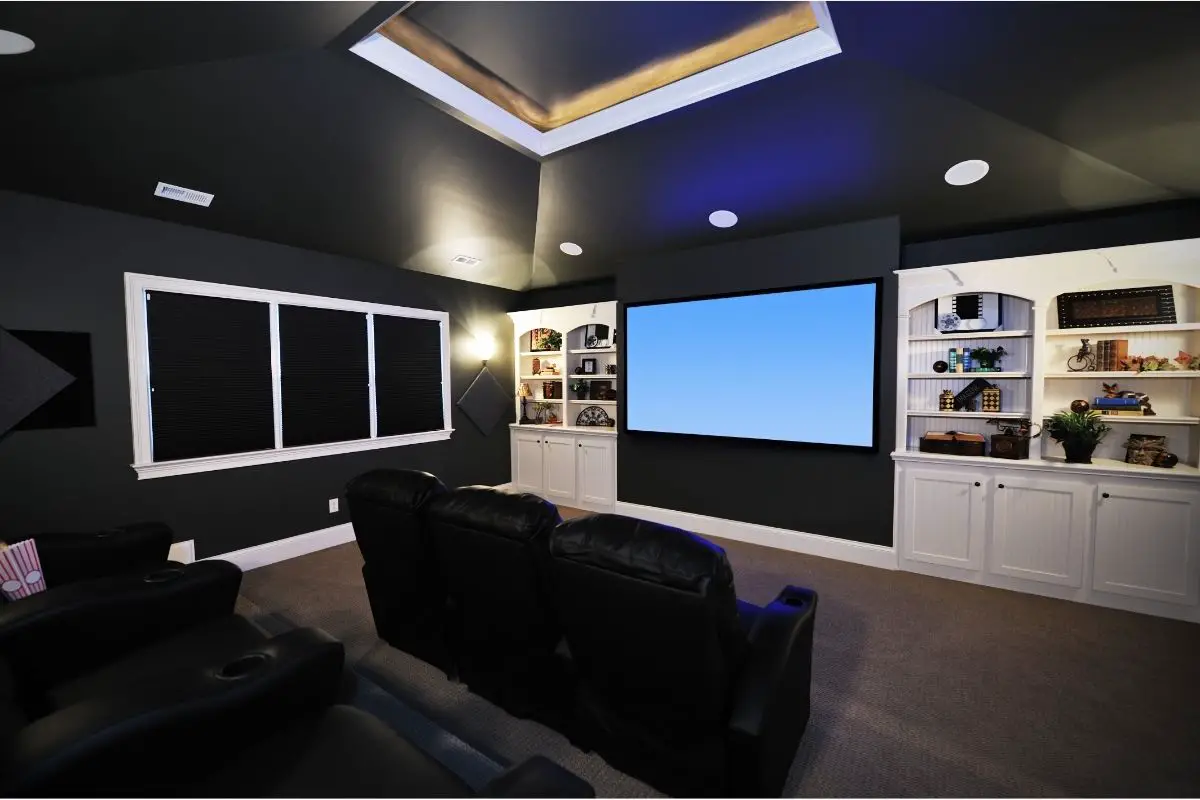
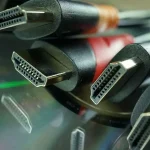
![How To Connect Soundbar To Hisense Roku TV? [Step-By-Step] How To Connect Soundbar To Hisense Roku TV](https://www.cinemaequip.com/wp-content/uploads/2022/07/How-To-Connect-Soundbar-To-Hisense-Roku-TV-1-150x150.jpg)
